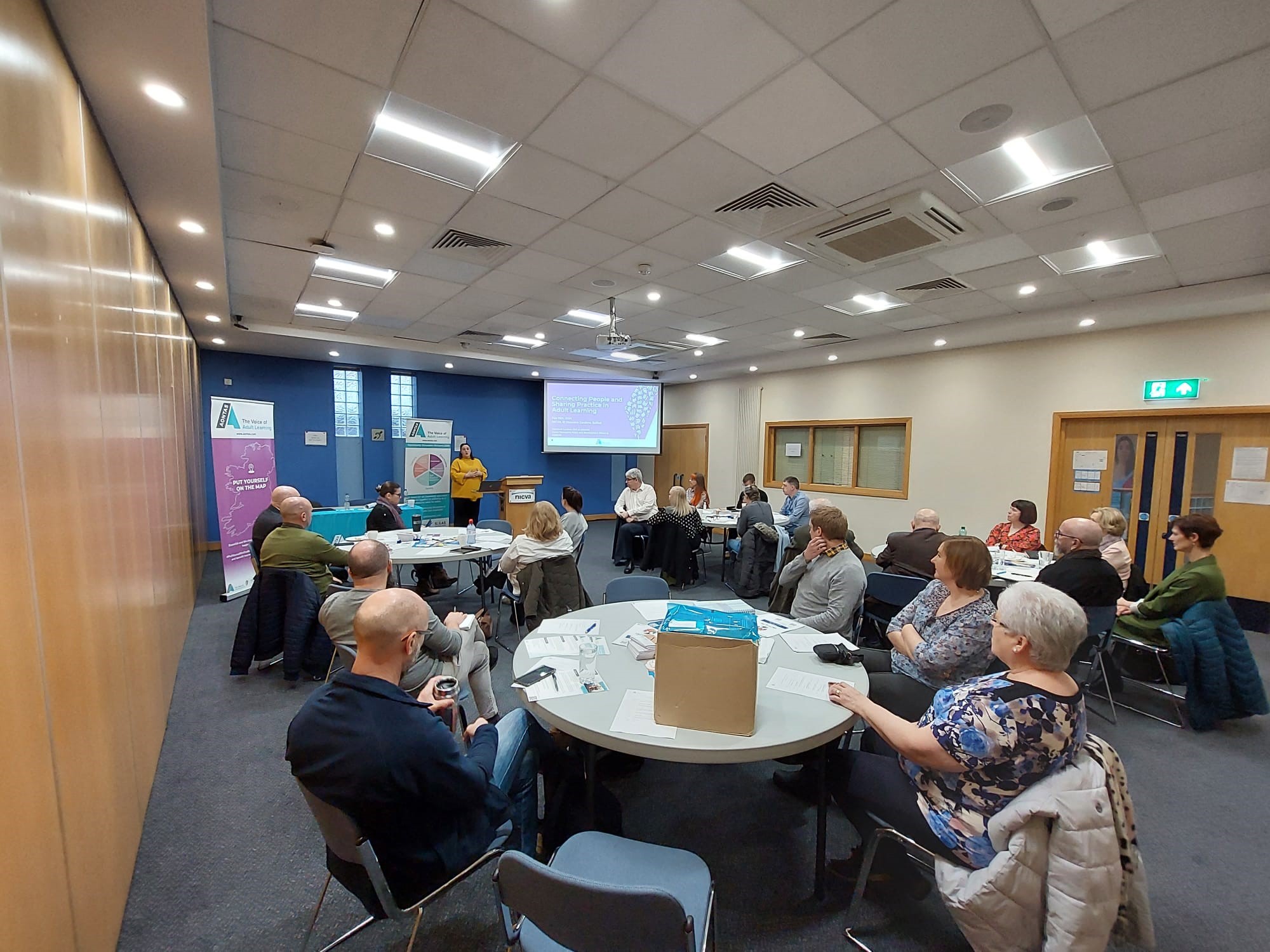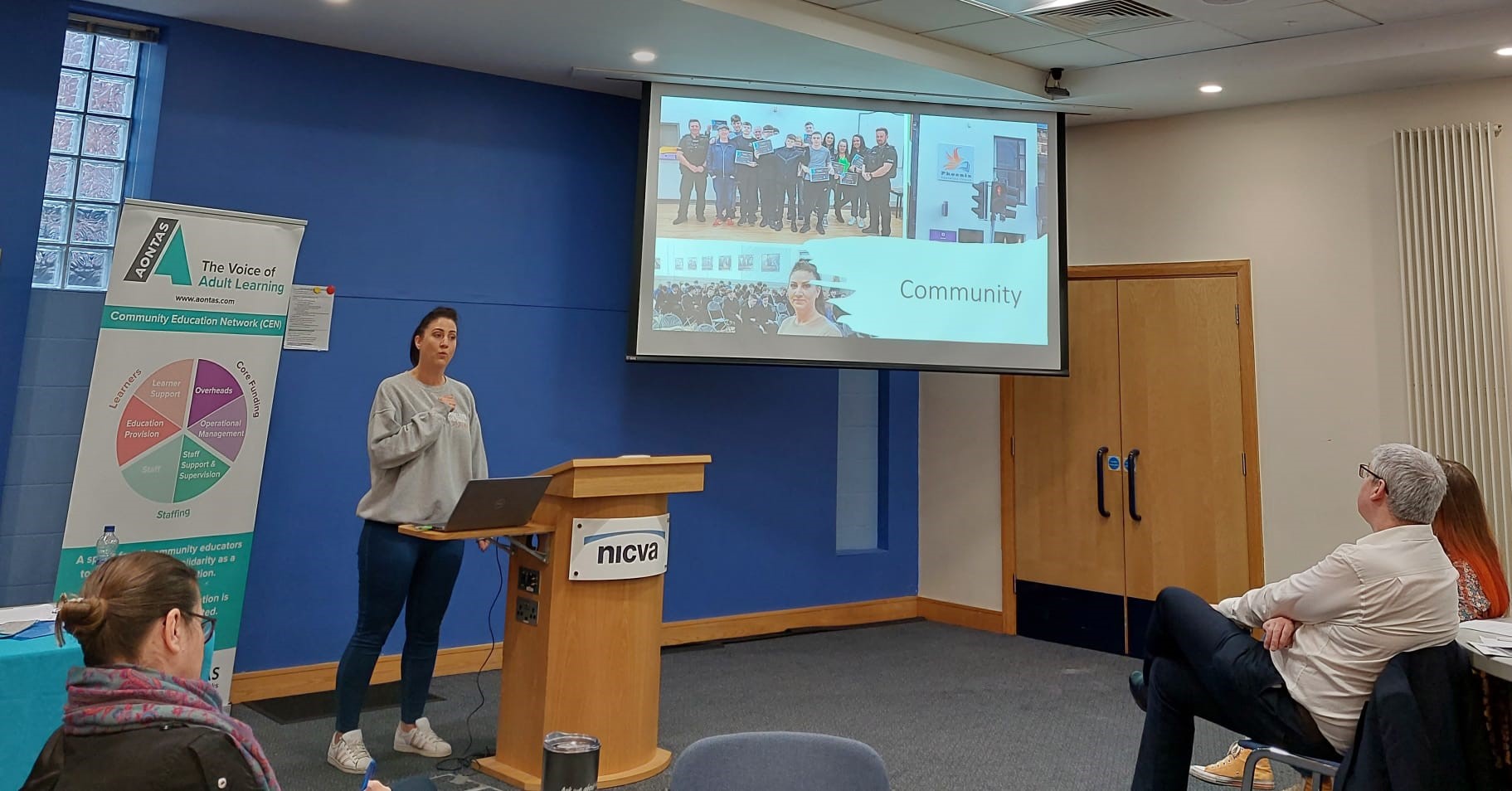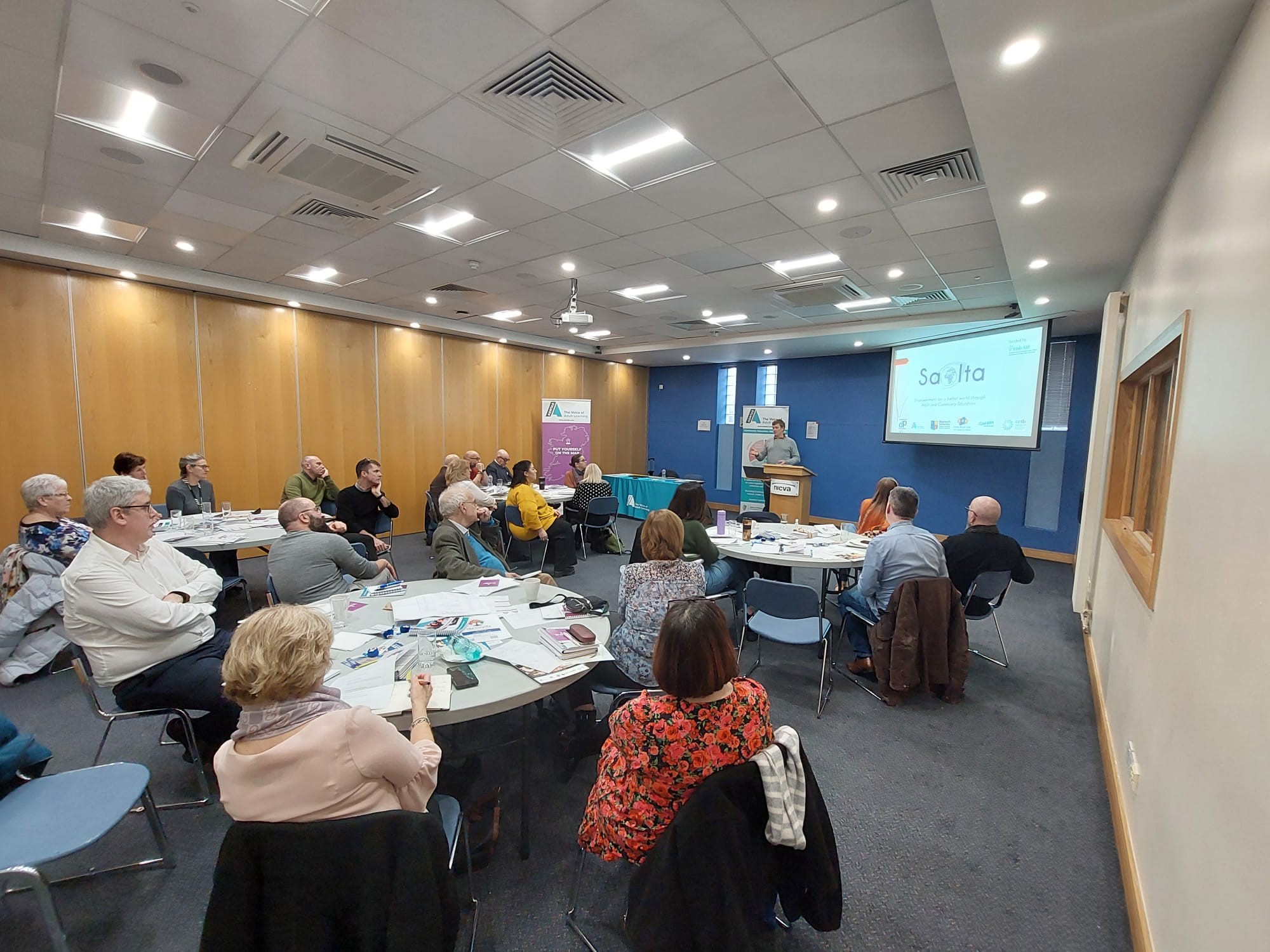Last year, we launched the first census of community education in Northern Ireland, which found that there is an urgent need for ringfenced, multi-annual funding if community education is to provide a truly supportive learning environment that will address long-term needs.
Our work on this is ongoing, and we recently organised a meeting in Belfast to continue the discussions with colleagues in the community learning sector from across Northern Ireland.

We heard from four speakers, Emma Shaw of the Phoenix Education Centre; John Morgan from Recovery College, Belfast Trust; Pauline Kersten from the Conway Education Centre; and Nick Doran from Development Perspectives who spoke about the Global Citizenship Education strategic partnership programme SAOLTA.
Speakers discussed ideas and challenges ranging from the need for sustainable funding; supporting non-formal community-based learning for people who may have had negative experiences with school in the past; the importance of prioritising health and wellbeing for learners; support for refugees; and the need to think about environmental sustainability and encouraging active citizenship.

Emma Shaw spoke about the importance of non-formal education for helping people get back to education. She works with 16-24 year-olds, who may have left school or formal education. She described how “not every young person can thrive in the same environment.” According to Emma, “if a flower doesn't bloom, you change its environment” and, just like a flower, you can't expect a person who found school challenging to succeed in their education without a change in their environment. That’s where community education and non-formal learning becomes very important, as it prioritises the person’s experiences outside of classroom as well as inside, and is a supportive place for people to feel safe and secure as they return to learning.
John Morgan told the group about the importance of health and wellbeing for adult learners. The Belfast Recovery College provides free mental health and wellbeing education, and learning programmes. “You can't live without hope,” John said. This is essential to helping people return to and stay in adult learning.
Pauline Kersten spoke to the group about adult education for refugees in Northern Ireland. She talked about the multiple benefits of adult learning for refugees, including how a person can do, for example, a construction skills course in plumbing and electrical training, and also gain English language skills along the way. Pauline told the group that their major challenge is short-term funding. They need sustainable funding to ensure these programmes continue into the future.
Nick Doran told the group about Saolta's core message encouraging people to “think globally and act locally.” This is a space that many community education centres and groups are working in, sometimes without even knowing it.
 Outcomes of the Meeting
Outcomes of the Meeting As a group, we identified several key issues.
Of prime importance is the need for sustainable funding for community education. There is a real need to move away from a year-on-year funding model. This kind of model means a lack of clarity and high levels of stress for staff working in community education.
The burden of reporting linked to funding was also identified as a key issue. The group determined that reporting should be aligned to the level of funding received.
Another important area is the need for parity between the voluntary and community sector and the statutory sector.
Attendees spoke of the need for a stronger voice to influence and lobby in Stormont.
A collective voice would mean that community education providers in Northern Ireland are more likely to see change happen. The group’s suggested advocacy goal is for a designated budget line with secured funding for five years for community education.
A joined-up Government approach is needed across departments for community education and lifelong learning. The responsibility for adult and community education rests not only with the Department of the Economy and the Department for Communities, but also with other departments like Health.
More work is needed to encourage employers to see the value of other qualifications beyond GCSEs and A Levels. Greater recognition is needed for other forms of qualifications.
For people who have come to Northern Ireland from other countries, there are challenges with ESOL courses (English for Speakers of Other Languages), how to gain new qualifications, and how to gain confidence in a new country. Community education is invaluable here, and could provide further support if properly funded.
For people with disabilities or different abilities, accessibility is an important issue for community education programs in Northern Ireland. Community education groups need more funding and resources to make materials and websites as accessible as possible.
AONTAS will share these priorities with the Lifelong Learning Alliance, a collective of organisations that want to see a better supported lifelong learning system in Northern Ireland. We will then submit the priorities identified to Government departments in the Northern Ireland Executive.
Keep an eye on our website and social media for more updates.
For more information, contact Conor Thompson, AONTAS Policy Officer at cthompson@aontas.com